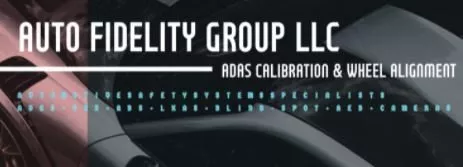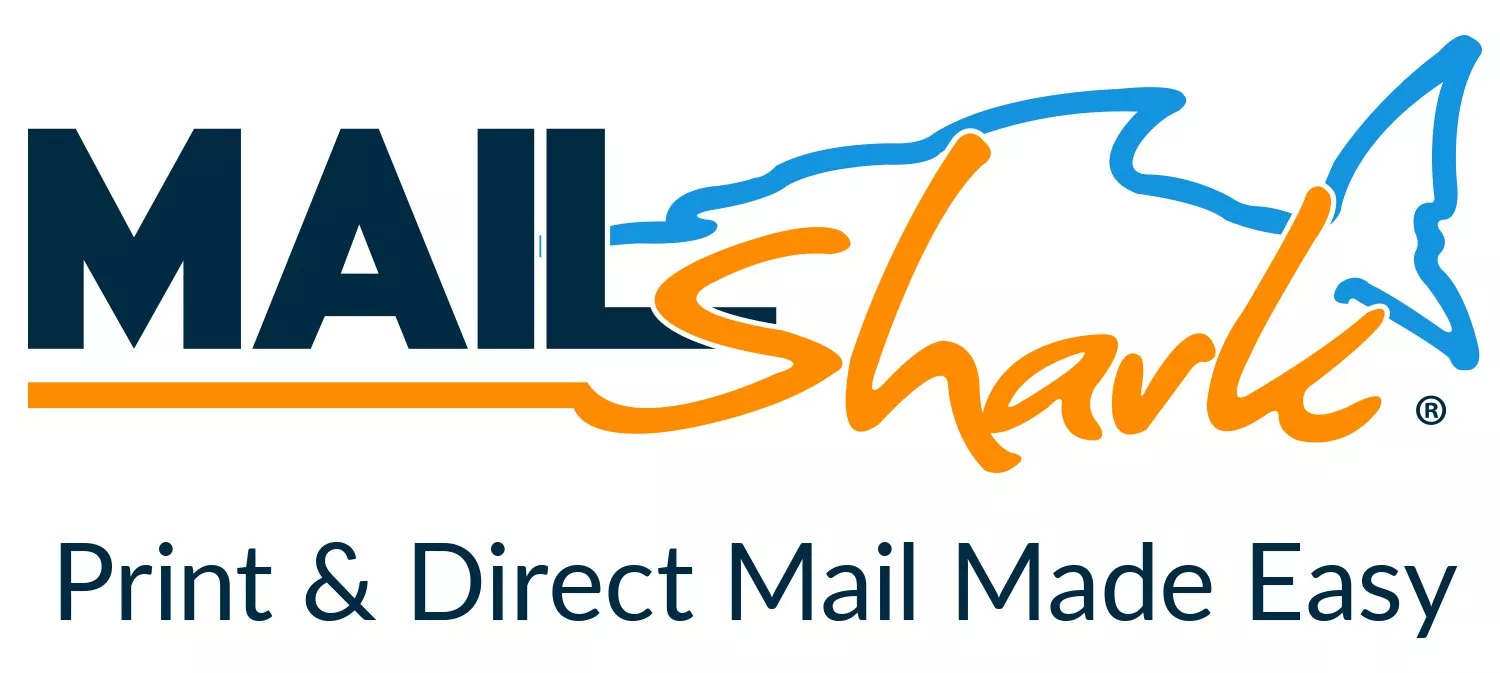Zeus, Snap-on has said they will remain with the windows 7 platform on Zeus after the end of life 1/2020. No upgrades to Win 10. Any insight on tool impact, If any?
-
Available Subscriptions
-
Have you checked out Joe's Latest Blog?
-
By Joe Marconi in Joe's Blog0 commentsIt always amazes me when I hear about a technician who quits one repair shop to go work at another shop for less money. I know you have heard of this too, and you’ve probably asked yourself, “Can this be true? And Why?” The answer rests within the culture of the company. More specifically, the boss, manager, or a toxic work environment literally pushed the technician out the door.
While money and benefits tend to attract people to a company, it won’t keep them there. When a technician begins to look over the fence for greener grass, that is usually a sign that something is wrong within the workplace. It also means that his or her heart is probably already gone. If the issue is not resolved, no amount of money will keep that technician for the long term. The heart is always the first to leave. The last thing that leaves is the technician’s toolbox.
Shop owners: Focus more on employee retention than acquisition. This is not to say that you should not be constantly recruiting. You should. What it does means is that once you hire someone, your job isn’t over, that’s when it begins. Get to know your technicians. Build strong relationships. Have frequent one-on-ones. Engage in meaningful conversation. Find what truly motivates your technicians. You may be surprised that while money is a motivator, it’s usually not the prime motivator.
One last thing; the cost of technician turnover can be financially devastating. It also affects shop morale. Do all you can to create a workplace where technicians feel they are respected, recognized, and know that their work contributes to the overall success of the company. This will lead to improved morale and team spirit. Remember, when you see a technician’s toolbox rolling out of the bay on its way to another shop, the heart was most likely gone long before that.
-
-
Similar Topics
-
By carmcapriotto
Thanks to our Partners, NAPA TRACS, and Today's Class Recorded at the NAPA Now Conference celebrating NAPA Auto Care’s 100th anniversary, Jason Rainey, Vice President of NAPA Auto Care, and Matt Crumpton, Director of Program Development, introduce the Team Tool Rebate program, which helps technicians manage tool debt while providing shops with funds to reward and retain talent. The conversation also emphasized NAPA’s apprenticeship and training programs, showcasing the company's commitment to education, workforce development, and genuine partnerships. Rainey and Crumpton highlight NAPA’s dedication to listening to its Auto Care members and delivering solutions that go beyond parts, aiming to uplift the industry through support, innovation, and strong shop culture.
Matt Crumpton, Director of Program Development, NAPA Auto Care
Jason Rainey, Vice President NAPA Auto Care. Jason’s previous episodes HERE Show Notes:
Watch Full Video Episode Introduction to NAPA NOW Conference (00:00:00) Training Focus at NAPA NOW (00:05:07) Introduction of Team Tool Rebate (00:06:22) The Concept Behind Team Tool Rebate (00:07:33) Allocation Process for Rebate Funds (00:10:59) Creating a Positive Shop Culture (00:12:25) Rebate Program Impact (00:15:02) Strengthening Relationships with Members (00:15:59) Understanding NAPA's Programs (00:17:08) Partnerships in the Automotive Industry (00:17:56) Team Tool Rebate Launch (00:19:51) Celebrating Partnerships (00:21:28) Engaging Technicians (00:22:17) Listening to Member Feedback (00:23:13)
Thanks to our Partner, NAPA TRACS NAPA TRACS will move your shop into the SMS fast lane with onsite training and six days a week of support and local representation. Find NAPA TRACS on the Web at http://napatracs.com/ Thanks to our Partner, Today's Class Optimize training with Today's Class: In just 5 minutes daily, boost knowledge retention and improve team performance. Find Today's Class on the web at https://www.todaysclass.com/ Connect with the Podcast: -The Aftermarket Radio Network: https://aftermarketradionetwork.com -Follow on Facebook: https://www.facebook.com/RemarkableResultsRadioPodcast/ -Join Our Private Facebook Community: https://www.facebook.com/groups/1734687266778976 -Join Our Virtual Toastmasters Club: https://remarkableresults.biz/toastmasters -Subscribe on YouTube: https://www.youtube.com/carmcapriotto -Follow on LinkedIn: https://www.linkedin.com/in/carmcapriotto/ -Follow on Instagram: https://www.instagram.com/remarkableresultsradiopodcast/ -Follow on X: https://twitter.com/RResultsBiz -Visit the Website: https://remarkableresults.biz/ -Join our Insider List: https://remarkableresults.biz/insider -All books mentioned on our podcasts: https://remarkableresults.biz/books -Our Classroom page for personal or team learning: https://remarkableresults.biz/classroom -Buy Me a Coffee: https://www.buymeacoffee.com/carm -Special episode collections: https://remarkableresults.biz/collections The Aftermarket Radio Network: https://aftermarketradionetwork.com/ Remarkable Results Radio Podcast with Carm Capriotto: Advancing the Aftermarket by Facilitating Wisdom Through Story Telling and Open Discussion. https://remarkableresults.biz/ Diagnosing the Aftermarket A to Z with Matt Fanslow: From Diagnostics to Metallica and Mental Health, Matt Fanslow is Lifting the Hood on Life. https://mattfanslow.captivate.fm/ Business by the Numbers with Hunt Demarest: Understand the Numbers of Your Business with CPA Hunt Demarest. https://huntdemarest.captivate.fm/ The Auto Repair Marketing Podcast with Kim and Brian Walker: Marketing Experts Brian & Kim Walker Work with Shop Owners to Take it to the Next Level. https://autorepairmarketing.captivate.fm/ The Weekly Blitz with Chris Cotton: Weekly Inspiration with Business Coach Chris Cotton from AutoFix - Auto Shop Coaching. https://chriscotton.captivate.fm/ Speak Up! Effective Communication with Craig O'Neill: Develop Interpersonal and Professional Communication Skills when Speaking to Audiences of Any Size. https://craigoneill.captivate.fm/
Click to go to the Podcast on Remarkable Results Radio
-
By Changing The Industry
Bonus Episode - The Impact of Returns, Inventory, & Technology on Auto Parts Pricing with WorldPac
-
By carmcapriotto
Thanks to our Partners, NAPA Auto Care, NAPA TRACS and Automotive Management Network Margaret Palango, CEO of Autoshop Solutions, shares her unexpected diagnosis of acute myeloid leukemia (AML) in May 2023. In this powerful episode, she shares the emotional and physical hurdles she faced, the intensity of her treatment, and how she stayed grounded through it all with a positive mindset. Margaret highlights the critical role of a strong support system and how her team, resilience, and leadership helped her navigate one of life’s toughest battles. Her story is a moving testament to the strength of the human spirit. Don’t miss this inspiring conversation filled with motivation, hope, and meaningful life lessons. Margaret Palango, CEO Autoshop Solutions. Margaret's previous episodes HERE Show Notes Watch Full Video Episode Introduction and Celebration (00:00:00) Margaret's Introduction (00:02:18) Understanding AML (00:02:30) The Importance of Positivity (00:06:18) Treatment Navigation (00:07:32) Listening to Your Body (00:08:18) Advocating for Health (00:09:50) Teamwork with Medical Staff (00:12:35) Managing Side Effects (00:18:25) Bone Marrow Transplant Journey (00:19:56) Importance of Remission (00:20:50) Mental Strength During Treatment (00:24:00) Support and Positivity (00:28:34) Team Dynamics and Leadership (00:30:08) Planning for the Unexpected (00:36:20) Lessons in Trust and Growth (00:37:00) Support from the Team (00:40:12)
Thanks to our Partners, NAPA Auto Care, NAPA TRACS and Automotive Management Network Learn more about NAPA Auto Care and the benefits of being part of the NAPA family by visiting https://www.napaonline.com/en/auto-care NAPA TRACS will move your shop into the SMS fast lane with onsite training and six days a week of support and local representation. Find NAPA TRACS on the Web at http://napatracs.com/ Get ready to grow your business with the Automotive Management Network: Find on the Web at http://AftermarketManagementNetwork.com for information that can help you move your business ahead and for the free and informative http://LaborRateTracker.com Connect with the Podcast: -Follow on Facebook: https://www.facebook.com/RemarkableResultsRadioPodcast/ -Join Our Virtual Toastmasters Club: https://remarkableresults.biz/toastmasters -Join Our Private Facebook Community: https://www.facebook.com/groups/1734687266778976 -Subscribe on YouTube: https://www.youtube.com/carmcapriotto -Follow on LinkedIn: https://www.linkedin.com/in/carmcapriotto/ -Follow on Instagram: https://www.instagram.com/remarkableresultsradiopodcast/ -Follow on Twitter: https://twitter.com/RResultsBiz -Visit the Website: https://remarkableresults.biz/ -Join our Insider List: https://remarkableresults.biz/insider -All books mentioned on our podcasts: https://remarkableresults.biz/books -Our Classroom page for personal or team learning: https://remarkableresults.biz/classroom -Buy Me a Coffee: https://www.buymeacoffee.com/carm -Special episode collections: https://remarkableresults.biz/collections The Aftermarket Radio Network: https://aftermarketradionetwork.com/ Remarkable Results Radio Podcast with Carm Capriotto: Advancing the Aftermarket by Facilitating Wisdom Through Story Telling and Open Discussion. https://remarkableresults.biz/ Diagnosing the Aftermarket A to Z with Matt Fanslow: From Diagnostics to Metallica and Mental Health, Matt Fanslow is Lifting the Hood on Life. https://mattfanslow.captivate.fm/ Business by the Numbers with Hunt Demarest: Understand the Numbers of Your Business with CPA Hunt Demarest. https://huntdemarest.captivate.fm/ The Auto Repair Marketing Podcast with Kim and Brian Walker: Marketing Experts Brian & Kim Walker Work with Shop Owners to Take it to the Next Level. https://autorepairmarketing.captivate.fm/ The Weekly Blitz with Chris Cotton: Weekly Inspiration with Business Coach Chris Cotton from AutoFix - Auto Shop Coaching. https://chriscotton.captivate.fm/ Speak Up! Effective Communication with Craig O'Neill: Develop Interpersonal and Professional Communication Skills when Speaking to Audiences of Any Size. https://craigoneill.captivate.fm/ Click to go to the Podcast on Remarkable Results Radio
-
By carmcapriotto
Thanks to our Partners, NAPA Auto Care, NAPA TRACS and Automotive Management Network This episode focuses on the importance of planning ahead for selling a business in the auto repair industry. Bob Ward stresses that business owners should start identifying and training potential successors early—often from their current team. He walks through a clear four-step process to help with the transition, covering key areas like finding the right fit, determining the business’s value, securing financing, and handling legal requirements. Bob Ward, Perpetual Business, Bob’s Previous Episode HERE. Bob Ward’s Email: bob@wardden.com Show Notes Watch Full Video Episode TST Big Event, March 29th, 2025: https://www.tstseminars.org/ Bob Ward's Ownership Essentials Class April 10-12, Phoenix, AZ: https://perpetualbusiness.co/product/ownership-essentials-phoenix-2025 Importance of Succession Planning (00:00:00) Challenges of Retirement (00:02:23) Value of Transitioning Ownership (00:03:23) Procrastination in Planning (00:05:01) Family Involvement in Succession (00:06:08) Role of Key Employees (00:07:30) Facilitating Ownership Transition (00:08:01) Four Steps to Succession (00:08:27) Retention Strategies (00:10:30) Equity Equivalence Concept (00:11:08) Managing Ownership Changes (00:12:53) Successor Responsibilities (00:15:09) Financing the Purchase (00:16:31) Process Simplification (00:17:31 Successor Concerns (00:21:53) Owner's Perspective on Successors (00:22:22) Missed Opportunities in Succession (00:22:49) Financial Realities for Successors (00:23:14) Perpetual Business Concept (00:28:39) Compatibility Assessment Importance (00:32:57) Essential Career Goals Discussion (00:34:11) Overcoming Fear of Ownership (00:36:40) Identifying the Right Successor (00:37:19) Valuation Metrics Discussion (00:39:36)
Thanks to our Partners, NAPA Auto Care, NAPA TRACS and Automotive Management Network Learn more about NAPA Auto Care and the benefits of being part of the NAPA family by visiting https://www.napaonline.com/en/auto-care NAPA TRACS will move your shop into the SMS fast lane with onsite training and six days a week of support and local representation. Find NAPA TRACS on the Web at http://napatracs.com/ Get ready to grow your business with the Automotive Management Network: Find on the Web at http://AftermarketManagementNetwork.com for information that can help you move your business ahead and for the free and informative http://LaborRateTracker.com Connect with the Podcast: -Follow on Facebook: https://www.facebook.com/RemarkableResultsRadioPodcast/ -Join Our Virtual Toastmasters Club: https://remarkableresults.biz/toastmasters -Join Our Private Facebook Community: https://www.facebook.com/groups/1734687266778976 -Subscribe on YouTube: https://www.youtube.com/carmcapriotto -Follow on LinkedIn: https://www.linkedin.com/in/carmcapriotto/ -Follow on Instagram: https://www.instagram.com/remarkableresultsradiopodcast/ -Follow on Twitter: https://twitter.com/RResultsBiz -Visit the Website: https://remarkableresults.biz/ -Join our Insider List: https://remarkableresults.biz/insider -All books mentioned on our podcasts: https://remarkableresults.biz/books -Our Classroom page for personal or team learning: https://remarkableresults.biz/classroom -Buy Me a Coffee: https://www.buymeacoffee.com/carm -Special episode collections: https://remarkableresults.biz/collections The Aftermarket Radio Network: https://aftermarketradionetwork.com/ Remarkable Results Radio Podcast with Carm Capriotto: Advancing the Aftermarket by Facilitating Wisdom Through Story Telling and Open Discussion. https://remarkableresults.biz/ Diagnosing the Aftermarket A to Z with Matt Fanslow: From Diagnostics to Metallica and Mental Health, Matt Fanslow is Lifting the Hood on Life. https://mattfanslow.captivate.fm/ Business by the Numbers with Hunt Demarest: Understand the Numbers of Your Business with CPA Hunt Demarest. https://huntdemarest.captivate.fm/ The Auto Repair Marketing Podcast with Kim and Brian Walker: Marketing Experts Brian & Kim Walker Work with Shop Owners to Take it to the Next Level. https://autorepairmarketing.captivate.fm/ The Weekly Blitz with Chris Cotton: Weekly Inspiration with Business Coach Chris Cotton from AutoFix - Auto Shop Coaching. https://chriscotton.captivate.fm/ Speak Up! Effective Communication with Craig O'Neill: Develop Interpersonal and Professional Communication Skills when Speaking to Audiences of Any Size. https://craigoneill.captivate.fm/ Click to go to the Podcast on Remarkable Results Radio
-
-
By Changing The Industry
Episode 204 - How Misconceptions in Auto Repair Pricing Impact Business With Jason Quillin
-
-
-
Our Sponsors













Recommended Posts
Create an account or sign in to comment
You need to be a member in order to leave a comment
Create an account
Sign up for a new account in our community. It's easy!
Register a new accountSign in
Already have an account? Sign in here.
Sign In Now